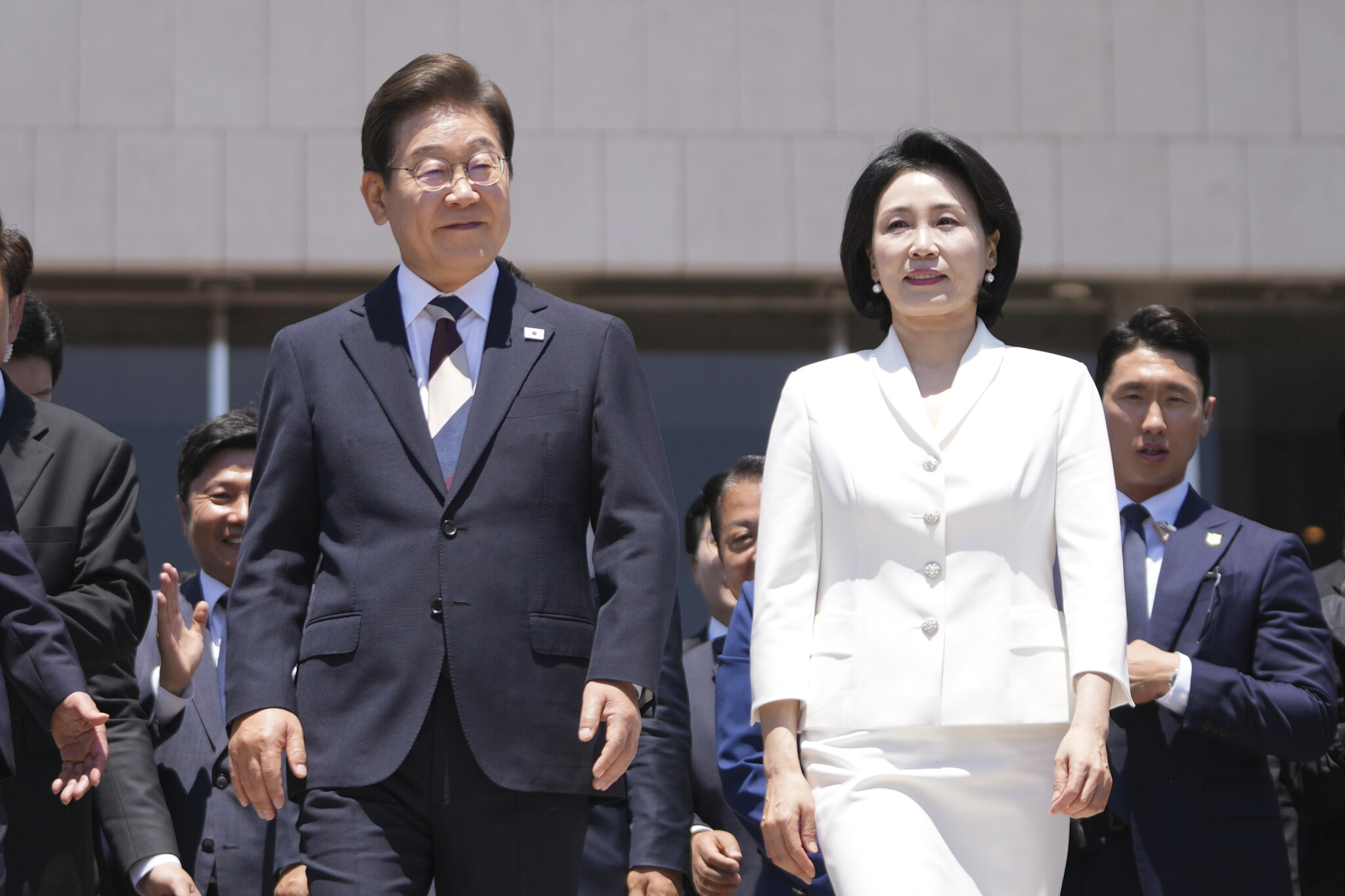South Korea’s newly elected President, Lee Jae-Myung, on Wednesday vowed to revive long-stalled talks with North Korea and strengthen strategic cooperation with the United States and Japan, as he laid out the broad contours of his five-year term.
Speaking at his inauguration in the National Assembly just hours after officially taking office, Lee said his administration would prioritise “pragmatic diplomacy” rooted in national interest while dealing firmly with threats from Pyongyang.

“We will open a communication channel with North Korea and establish peace on the Korean Peninsula through talks and cooperation,” Lee said, while pledging “strong deterrence” in partnership with Washington to counter potential aggression from the North.
The 59-year-old liberal leader, who emerged from a childhood of poverty to become a prominent advocate for social equity, was elected in a snap poll triggered by the dismissal of conservative predecessor Yoon Suk Yeol. Yoon was ousted in April following a failed and controversial imposition of martial law in late 2024, which sparked widespread public outcry.
Lee’s speech signalled a careful recalibration of South Korea’s foreign policy. Though once criticised for his perceived leniency towards Beijing and Pyongyang, he now appears intent on shoring up Seoul’s alliances with Washington and Tokyo amid heightened geopolitical uncertainty.
“Through pragmatic diplomacy based on national interests, we will turn the crisis posed by the major shift in global economic and security landscapes into an opportunity to maximise our national interests,” Lee asserted.
Prime Minister Narendra Modi was among the first world leaders to congratulate Lee. “Look forward to working together to further expand and strengthen the India-ROK Special Strategic Partnership,” Modi posted on X.
Also read: Kim furious after Navy destroyer suffers launch damage
Lee faces an array of foreign policy challenges, including renewed trade tensions with Washington under President Donald Trump’s tariff regime, and concerns over the growing military nexus between Pyongyang and Moscow. North Korea’s arms supplies to Russia, reportedly in support of the war in Ukraine, have raised fears of technological transfers aiding its nuclear weapons programme.
While Lee made no direct mention of trade frictions with the US during his speech, analysts noted his efforts to project a more centrist and statesmanlike image.
“The real test will be whether the demands of office pull him closer to the centre on security and diplomacy,” said Ankit Panda of the Carnegie Endowment for International Peace.
Japan and the US welcomed Lee’s election. Japanese Prime Minister Shigeru Ishiba expressed hope for an early summit, while Washington reaffirmed the “ironclad commitment” underpinning the South Korea-US alliance.
It remains to be seen how Pyongyang will respond. North Korea has refused formal engagement with Seoul since 2019 and remains entangled in deeper alignment with Russia. In a related development, Russia’s Tass agency reported that top Kremlin security official Sergei Shoigu arrived in Pyongyang for talks with North Korean leader Kim Jong Un.
Later in the day, President Lee nominated Lee Jong-seok, a former Unification Minister known for favouring North-South engagement, as the new spy chief — a signal that dialogue with Pyongyang may be high on the administration’s early agenda.



